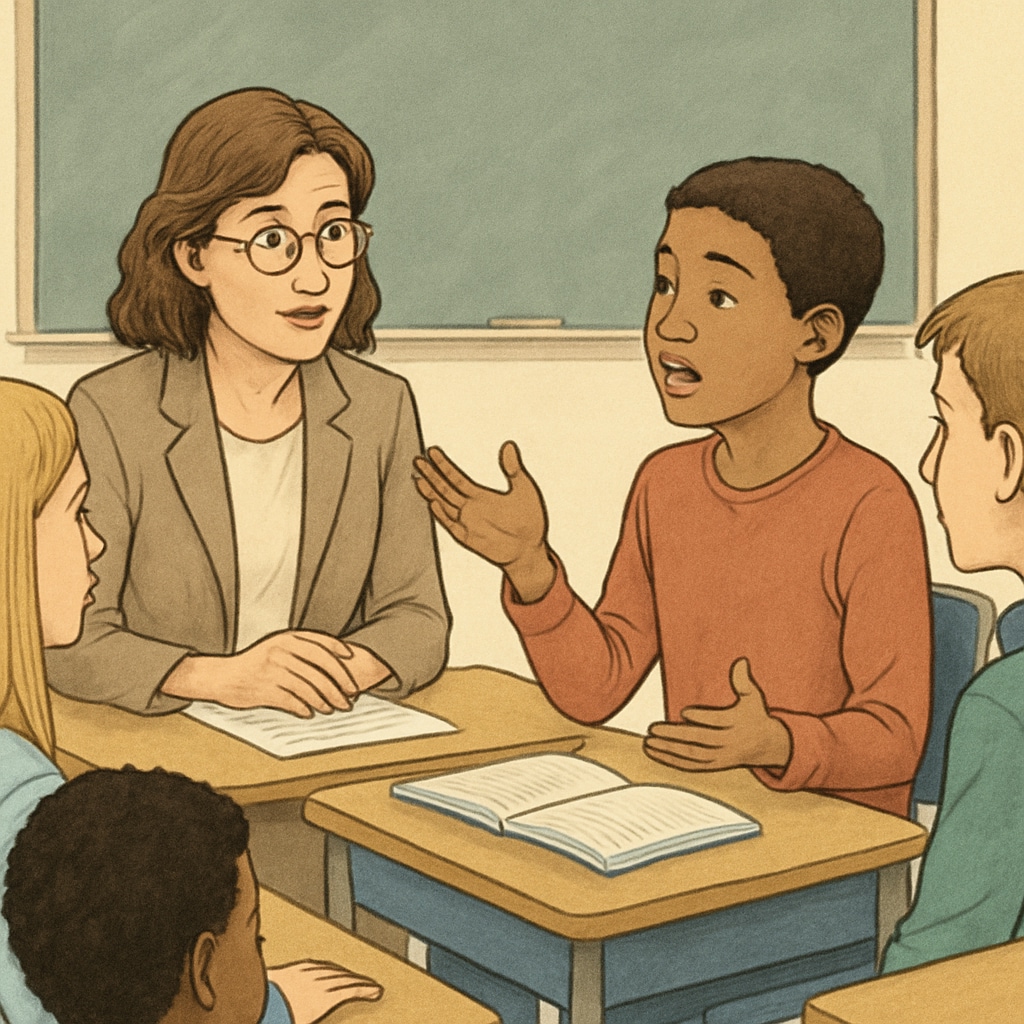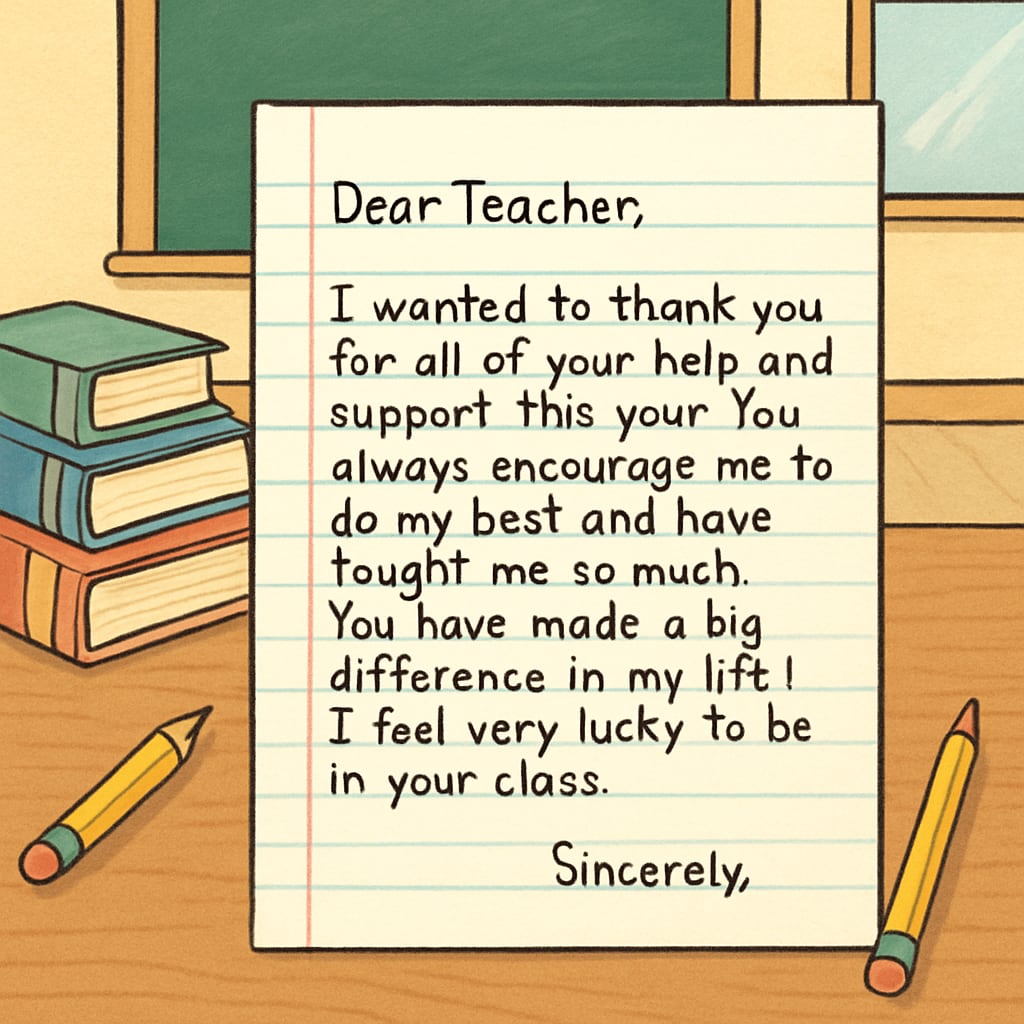In education, few experiences are as transformative as the moment when a student feels truly heard. This article explores the impact of genuine listening on student growth, focusing on how a teacher’s thoughtful engagement can become a life-changing experience. Through the lens of one student’s heartfelt gratitude, we’ll uncover why valuing student voices is essential in K-12 education and how such moments create lasting memories for both teachers and students.
The Transformative Power of Genuine Listening
Teachers hold a unique position of influence in their students’ lives. However, it’s not always their lessons or lectures that leave the deepest marks. Often, it’s the simple act of listening—of showing genuine interest in a student’s thoughts and ideas—that creates the most profound impact. For one student, this act of listening became a pivotal moment in their educational journey.
Imagine a young learner struggling to articulate their perspective in a busy classroom. They hesitate, unsure if their voice matters. Then, their teacher pauses, looks them in the eye, and asks, “What do you think?” This seemingly small gesture can spark a significant shift. It signals respect, validation, and belief in the student’s ability to contribute meaningfully. It was in such a moment that one student found the confidence to share their ideas, later reflecting on how that single instance of being heard inspired them to pursue their passions.

Why Student Voices Matter in K-12 Education
Valuing student voices in education isn’t just about building confidence—it’s about fostering mutual respect and creating an environment where learning thrives. When students feel heard, they become more engaged, motivated, and willing to take intellectual risks. This is especially critical during formative K-12 years, where self-esteem and identity are being shaped.
According to educational research, students who perceive their teachers as supportive and attentive are more likely to excel academically and socially. For instance, a study by the George Lucas Educational Foundation highlights how amplifying student voices leads to improved classroom dynamics and better outcomes. Teachers who embrace this approach often find that their relationships with students deepen, creating a positive feedback loop of trust and respect.
When Gratitude Becomes a Catalyst for Growth
For many educators, moments of student gratitude serve as affirmations of their calling. A heartfelt “thank you” or a note expressing appreciation can remind teachers of the profound impact they have on young lives. These expressions of gratitude often come from moments where teachers went beyond their academic duties—when they listened, understood, and encouraged.
One teacher recalls receiving a letter from a former student who had struggled with self-doubt. The student wrote, “You didn’t just teach me history; you taught me to believe in myself. The day you asked for my opinion during class was the day I realized my voice matters.” Such stories are not uncommon in education, yet they underscore the enduring impact of simple but meaningful interactions.

How Teachers Can Cultivate a Culture of Listening
Creating a classroom environment that values student voices requires intentionality. Here are a few strategies teachers can adopt:
- Ask open-ended questions: Encourage students to think critically and express themselves without fear of judgment.
- Practice active listening: Show genuine interest by maintaining eye contact, nodding, and responding thoughtfully to student input.
- Provide opportunities for dialogue: Incorporate discussions, debates, and collaborative projects that require student participation.
- Celebrate diverse perspectives: Highlight the value of different viewpoints, fostering an inclusive and respectful classroom culture.
By implementing these practices, teachers can ensure that every student feels seen, heard, and valued. As a result, they not only enhance learning outcomes but also contribute to the personal growth of their students.
Conclusion: The Lasting Impact of Listening
The act of listening is a powerful tool in education. It bridges the gap between teachers and students, creating a space where mutual respect and understanding flourish. For students, being heard can ignite self-confidence and ambition. For teachers, these moments of connection often become the most rewarding aspects of their careers.
As we reflect on the story of a student’s gratitude for their teacher’s genuine listening, it’s clear that the value of such interactions extends far beyond the classroom. They shape lives, build character, and leave lasting imprints on all involved. In the words of one grateful student, “Thank you for listening. It made all the difference.”
Readability guidance: Short paragraphs and actionable lists enhance clarity. Active voice and transitional phrases ensure smooth reading, while examples and external links provide credibility and depth.


